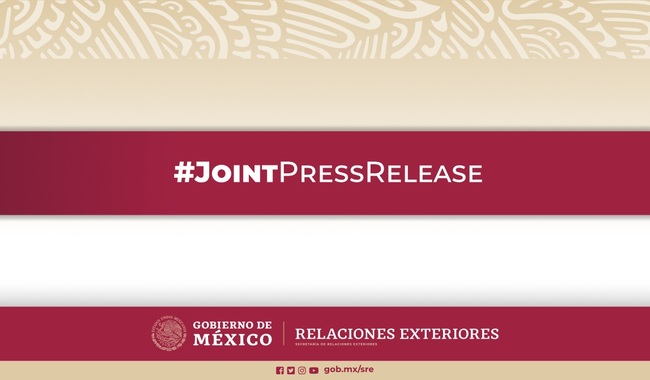- The Mexican government believes the country is being treated unfairly in that its efforts—publicly recognized by CITES—are not being taken into account. Despite this, Mexico is open to dialogue and is willing to address CITES' observations.
Regarding the decision of the Secretariat of the Convention on International Trade in Endangered Species of Wild Fauna and Flora (CITES) that will be officially issued next week stating that Mexico’s Action Plan to combat the illegal trade in totoaba presented on February 27 is inadequate, the Government of Mexico reports that it is willing to discuss the observations and resolve them satisfactorily, despite the fact that it believes this treatment to be unfair because it does not take into account the exhaustive efforts and many actions taken by Mexico.
At a special meeting of the Intragovernmental Group on Sustainability in the Upper Gulf of California (GIS), it was agreed to send a delegation of Mexican authorities to Geneva, Switzerland on Monday to meet with CITES to review the observations and the work that has been done by Mexico.
Mexico demonstrated its goodwill by submitting a preliminary version of the Action Plan in advance for comments, which were addressed in the final document. Ten different institutions participated at the highest level to prepare the Plan. They are committed to following up on and complying with the actions proposed to CITES.
The CITES resolution states that, although the CITES Secretariat recognizes Mexico's commitment, it believes it lacks what is needed for proper follow-up, and it recommends that the member countries suspend all trade with Mexico of the species listed in its Appendices, which will remain in force until it receives a satisfactory Action Plan.
It is important to note that, regarding the problem of illegal totoaba trafficking, the transit and destination countries are co-responsible. In addition, CITES must carry through with its offer to finance studies on the Upper Gulf of California.
The Government of Mexico reiterates its readiness to work with CITES to reverse this decision and to address the specific issues required of it.
